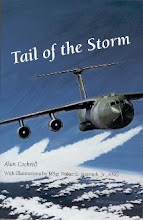I like to grab a coffee, stroll back and mingle in the few minutes I have after setting up the cockpit for departure. I want a respite before the turbines spool-up and the electronic voices from my earphones begin spewing their enjoinments.
Since the 757 loads amid-ships (don't you love it when I talk navy?) I get a clear aisle in first class. I chat a bit, answer a few questions. Even grumps get civil when they see a pilot pause take an interest in them. I don't do this to make my company look good; I do it for me.
I also look for kids to invite to the cockpit. But the last several years of doing this has taught me not to bother asking teenagers. You likely won't get the courtesy of a verbal answer. They will only shake their heads, and may not even look up at you from their lightning fast orchestration of thumbs against tiny keyboards.
I've often wondered which of their curious emotional states are responsible for this behavior—overwhelming fixation on their texting tasks, or a reluctance to demonstrate they are interested in anything outside their tiny sphere of reference. Even if they are, it's simply not cool to be inquisitive about things that excite younger children or that adults are interested in.
And so it is to the pre-teens to whom I gravitate with invitations to visit our Jurassic aged Boeing cockpit. Sadly even they have succumbed to the spell of the Google god and the Apple alchemy.
A few days ago two of them in first class curtly rejected my offer to go forward. So I ventured deeper back into the 757's bowel. It was busy back there—they were still boarding. But I noticed a kid about five rows back who had severe Down syndrome. When his mother noticed me I asked if he would like to visit the cockpit. She hesitated, then nodded. I halted boarding at the door and waited for the aisle to clear.
The boy, whom she called Andy, weighed at least as much as she did. His age was hard to determine. He could have been an adult.
I expected him to get up and accompany her forward, but it became evident he couldn't walk. He winced in pain when she maneuvered him into her arms and stood up. I was stunned to see her carry that boy to the cockpit and carefully place him in my seat.
Again his face became contorted with pain as she sat him down. The first officer, Karl, tried to help her, but she waved him off. She had her method. Then she backed away and raised her camera for a picture.
Andy's eyes widened to the size of dinner plates; his mouth fell agape and a guttural cry came out so loud that I'm sure the kids back in first class heard it. Probably snickered. But it was a cry of fascination and joy—I saw it in his big round eyes. Andy's head bobbled around as he tried to take in all the sights of the cockpit accoutrements. His babbles were gibberish to us but sweet exclamations of delight to the mom.
Then she wrestled him from the seat and heaved him up to her chest, holding him like a big baby with his head looking back over her shoulder. She passed me and said “Thank you.”
“No!” I said. “Thank you.”
She was gone before I could say any more, but what I wanted to add was this: “Thank you for showing all of us what unconditional love looks like.”
I noticed one kid in first class actually looked up from her phone with wide eyes and gaping mouth, watching Andy go by clinging to his mother as she carried her precious burden back to their coach seats.
I stepped back toward the cockpit door and passed by a flight attendant wiping tears out of her eyes. Karl and I just sat for minutes after that, not saying much—just thinking about Andy and his mom, and waiting for the push signal.
The sky was bluer that day. The ride smoother. We didn't complain much.
Never Forget
American flags flies permanently over Boston Logan Gate C-19
where Captain Victor Saracini and First Officer Mike Horrocks
departed on their final flight, September 11, 2001.





